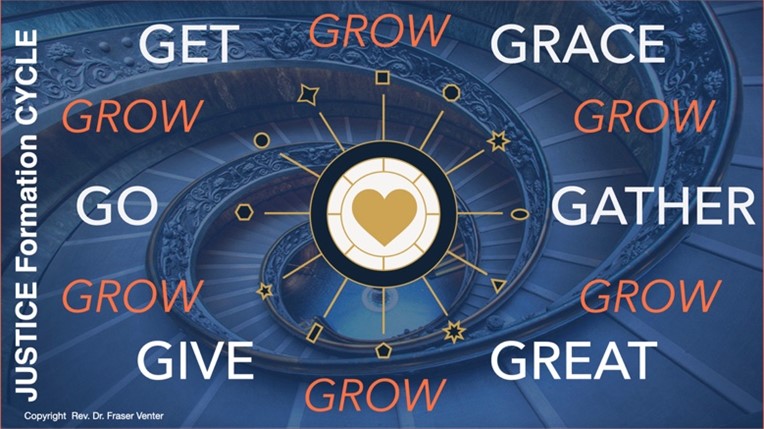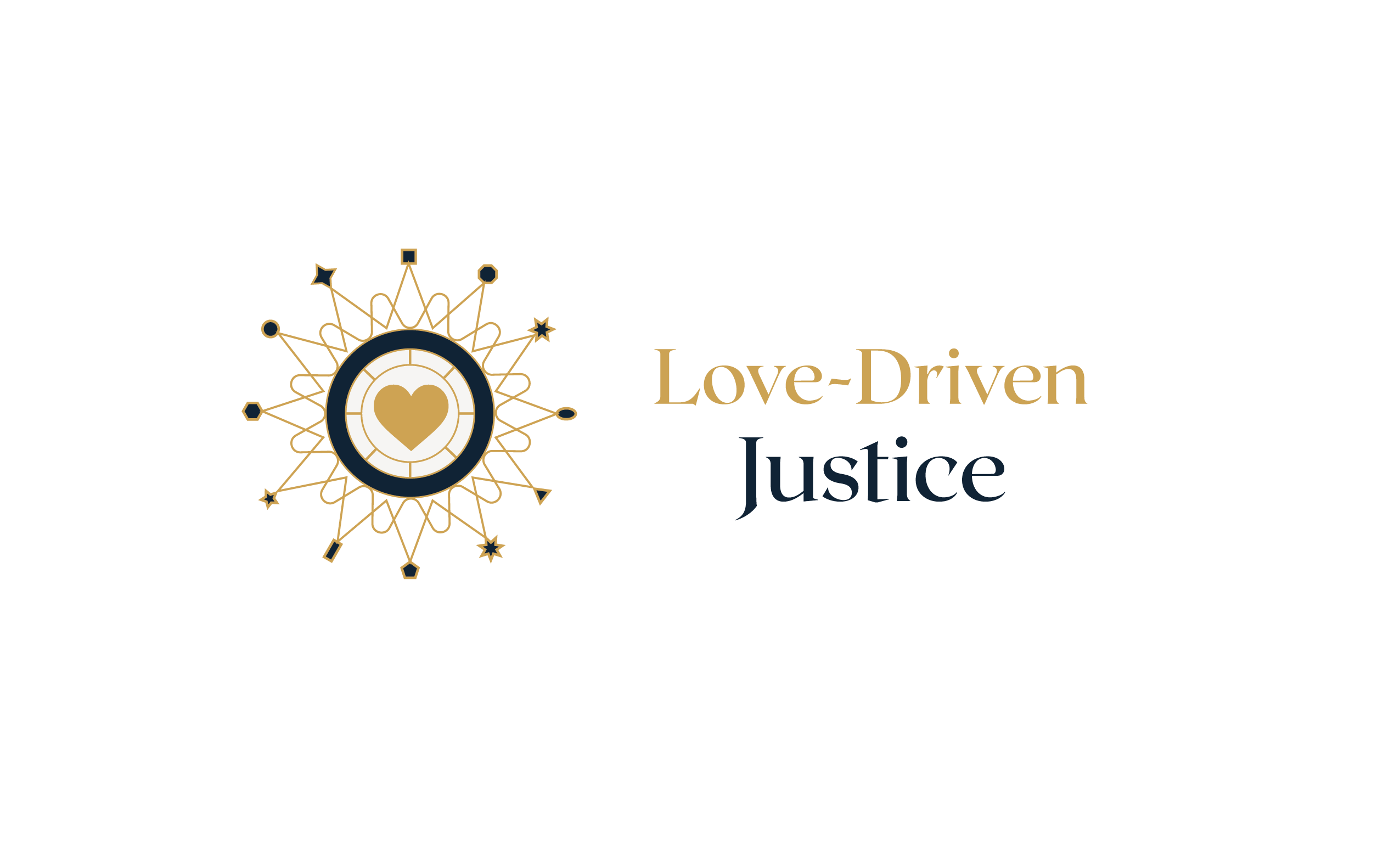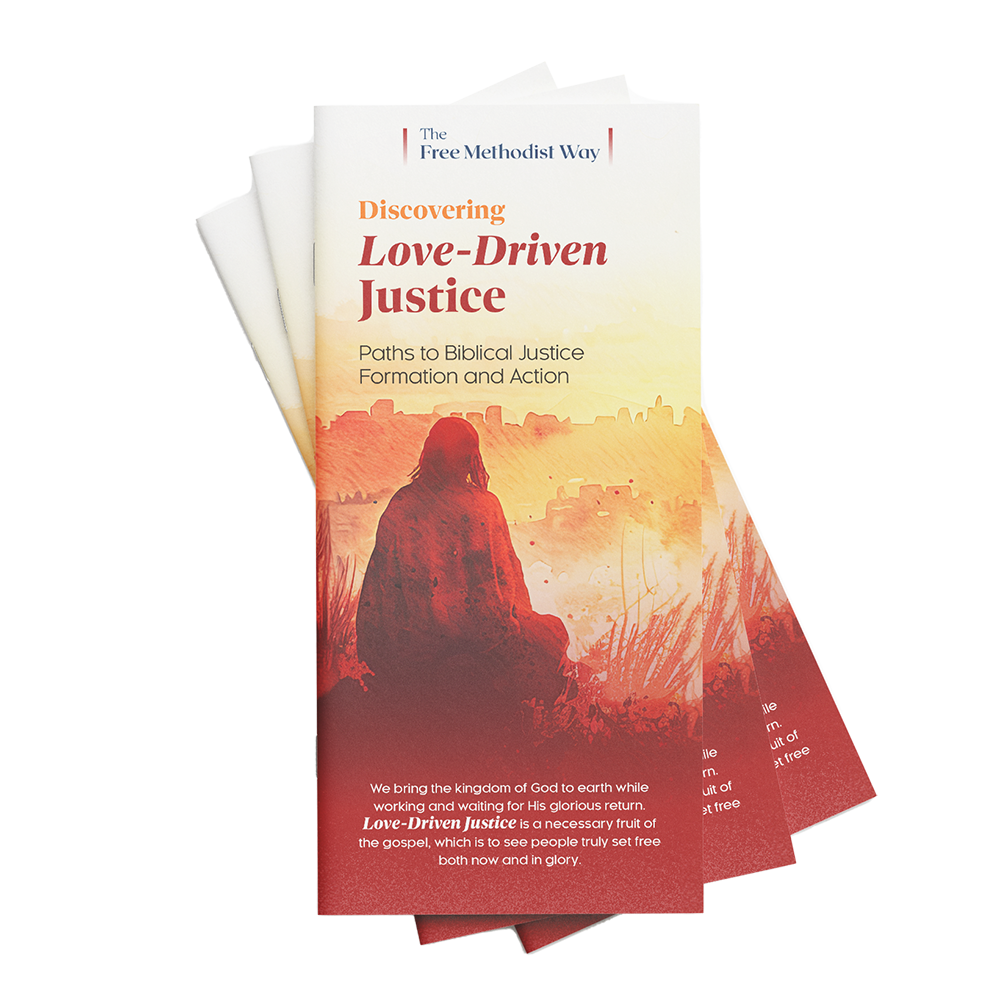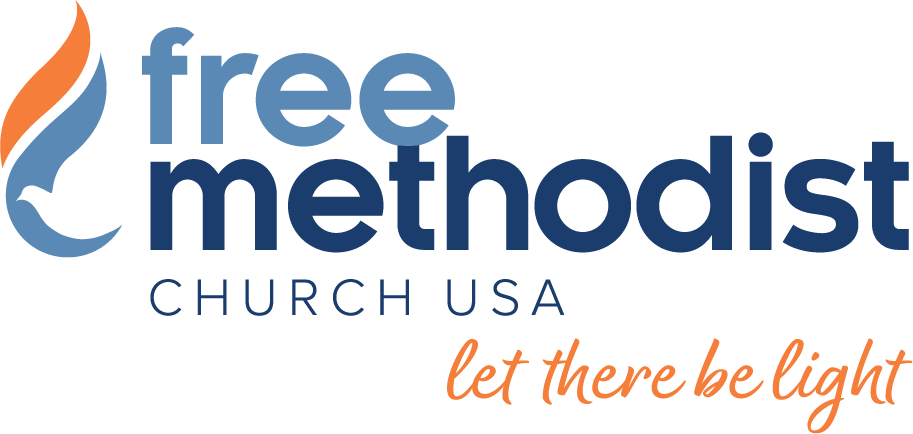Discovering Love-Driven Justice
by Rev. Dr. Fraser Venter, Strategic Catalyst for Love-Driven Justice
Where it started.
In 1885, B.T. Roberts, the founder of Free Methodism, stated,
“One effect of true holiness is to make us deeply interested in various benevolent enterprises. It takes us out of ourselves. It enlists our energies in behalf of interests that have no direct bearing on our personal affairs. We give our time and money for that which brings us neither profit nor reputation.”
- T. Roberts, “Follow On,” The Earnest Christian50, no. 1 (July 1885): 34.
As Free Methodists, our movement’s roots are deeply tied to the idea that the gospel includes a theological praxis of justice that is not an appendage or scriptural aberration. It is vital to our gospel witness to bring Christ to the marginalized and the systems that hinder human shalom.
Our pioneers believed in not only freedom from sin but also the systems of oppression that sin creates in diminishing human flourishing. We believe in the reward of heaven by faith through Jesus and the revitalization that gift brings to earth (creation and humanity) through the Holy Spirit while living in the “now, not yet” tension of our time.
We bring the Kingdom of God to earth while working and waiting for His glorious return. Love-Driven Justice is a necessary fruit of the gospel, which is to see people truly set free both now and in glory.
So, where do we start?
We start with God’s Word and see Love-Driven Justice as integral to our Kingdom theology, recognizing the grace of God’s benevolence toward us is a gift that should impact creation and humanity all around us.
Various Opinions concerning justice.
In many ways, each person views (or has an opinion) on the semantic range of what Justice means. Villodas aptly shares how wide that range can be in the following:
“For some people, justice means my rights and freedom, whereas for others, it means socialism. For some it means faithfulness to the gospel, and for others, the forsaking of the gospel. When some think about justice, they think in terms of punishment for crimes committed. For others, justice is another way of understanding karma—that you get what you deserve.” Villodas, Rich. Good and Beautiful and Kind: Becoming Whole in a Fractured World (pp. 185-186). Random House Publishing Group. Kindle Edition.
When considering this, it makes complete sense why so many are divided on biblical justice issues.
Theologian Scot McKnight wisely advises that if the starting point for understanding justice begins with culture, it will not lead us to a Kingdom focus.
“But justice for the Christian is not about freedom or liberty, rights, individualism, or the pursuit of happiness. When that is what justice means to the Christian, that Christian has adopted Western values as the standard by which justice is defined, Christians can’t let the U.S. Constitution (or John Stuart Mill or Karl Marx) define what “justice” means. We have to define justice in a way consistent with what Jesus meant by “kingdom.”
Scot McKnight, A Community Called Atonement, Living Theology, ed. Tony Jones (Nashville: Abingdon, 2007), 124.
So, we start with God’s Word.
Scripture declares that God is not only just in His character and nature (Deuteronomy 32:4; Psalm 89:14) but that He is also a lover of Justice (Psalm 99:4; Isaiah 61:8) and acts justly (Deuteronomy 10:17-19). And as God self-defines as being just, He then calls upon us with the indwelling of His Spirit to act justly (Micah 6:8) and continue His missio Dei (Luke 4:18-19; Matthew 28:18-20).
An essential aspect of growth that should be included in Love-Driven Justice is starting with the who and the why. In our eagerness to do justice, we often forget about our partner, the Holy Spirit, and why God calls us to the work of justice. The who of God continually helps us grow in His nature and character as He reveals how He will act. For example, if He is love, He is loving, and therefore we are loving.
When we grow in the why of God, the missio Dei, we partner in the strategies of His Kingdom’s rule rather than our own. We begin to see that salvation is not only individual but seeks to manifest shalom in the spaces people live and work, and seeks to cause creation and systems to flourish in holy ways.
In the Free Methodist Way, the definition of Love-Driven Justice is “the way we demonstrate God’s heart for justice by valuing the image of God in all people, acting with compassion toward the oppressed, resisting oppression, and stewarding creation.” We is highlighted because this work is done in partnership with God and each other. We do justice, love kindness, and walk humbly together.
The following briefly introduces the idea of implementing Love-Driven Justice.

As you navigate the justice formation cycle, remember that it is not meant to be a checklist but a continual engagement that helps the individual and the church grow in their understanding of justice and do justice in their context.
Finding Your ‘Get’
1 Corinthians 12:4-7
Get is such an unusual place to begin. One would think grow is the most optimal place to start. In many ways it is, but as you see throughout the cycle, grow is inserted between each place of formation as it becomes the most important aspect of Love-Driven Justice.
So, let’s think about the get. What’s your get? Another way to say it is, “What has God put on your heart when it comes to Justice (or Injustice) that you can’t shake?”
Beginning with get causes us to realize that more knowledge does not always equate with more passion. You have probably heard it said, “We are much more informed than transformed!”
Howard Thurman once wrote, “Don’t ask what the world needs. Ask what makes you come alive, and go do it. Because what the world needs is people who have come alive.”
We need more aliveness in our discipleship and certainly in our pursuit of Love-Driven Justice. When was the last time you asked God what He was passionate about? What His heart breaks over or, better yet, who His heart breaks for. What questions do we ask God to answer regarding our churches, communities, and nations when it comes to the overwhelming injustices we see, hear, and experience?
What’s your get? Quietly sit with Jesus and ask Him to reveal a place where you may get the privilege of joining Him in sharing the gospel in a Love-Driven Justice way.
Keep on Growing
2 Peter 3:18
As you wrestle with your get, begin to lean into your growth. Consider taking the time to understand the get as you discover how to be an advocate and ambassador of mercy, compassion, and love regarding a particular injustice He lays on your heart.
You will be surprised that you are not the first to think about or engage in the issue. The first place to dive deeply into your growth is always God’s Word. Let His Word be the first and last on the topic. For example, if you are concerned about poverty, you will be blessed with what Scripture advises. Also, along with Scripture, the gift of the Wesleyan quadrilateral approach to learning is beneficial (Scripture, reason, tradition, and experience). What is the experience of this issue for yourself and those experiencing it? How has tradition interpreted the issue, and how has it been engaged? And finally, reason, what great thoughts and even (agreeing or contrary) have been shared concerning this issue?
What might your next step of growth be towards your get?
Remembering and Dispensing Grace
Ephesians 2:8-9; Colossians 3:13
In our pursuit of Love-Driven Justice, we must never forget that all people need God’s grace. We want to ensure that His Grace is communicated in our words and actions as we pursue Justice. Grace sets us apart from what the world offers. Our need for grace reminds us to be gracious to all those we seek to love in and through injustice.
Entering the realm of Love-Driven Justice we are bound to encounter different opinions, lifestyles, and divisions. Grace is the bridge where we see the image of God in others and believe the best in one another.
When thinking of the get of your justice work what grace will be required?
Devotion to Gathering.
Acts 2:42-47
Love-Driven Justice is not meant to be a solo effort. The church’s witness is best done in community. The need for accountability, discernment, resources, and prayer is found in our intentionality in working in partnership with others.
Diligently seek out others who share a similar get — being in a community with like-minded people who will help with resilience and resources when the work against injustice is long and sometimes painful.
Taking the Greats with you.
Matthew 22:36-39; Matthew 28:18-20; John 17:6-25; Luke 4:18-19
Love-Driven Justice should always attempt to take us back to the greats (commandments, commission, prayer, and mission). Doing justice work demonstrates to the world the power of Christ in love, authority, discipleship, community, prayer, unity, compassion, and freedom.
The greats are essential in both the practice and contemplation of justice. Justice is our discipleship on display to the people God profoundly loves and gave His life for.
How are the greats tied to your get?
Give your whole self.
Luke 12:48
An important aspect of pursuing Love-Driven Justice is putting your whole self into the work. When working on different injustices, different areas of our stewardship will be required. However, that is the beauty of God using all of us in this work. For example, in the area of Domestic Abuse/Violence, the need for lawyers, medical, social workers, counselors, employment agents, and babysitters are all needed.
What are the gifts you bring to your get? What time are you willing to sacrifice? What financial gift can you give?
Time to Go
Acts 1:8; Matthew 6:33-34; 1 Peter 2:9; Isaiah 6:8
The pursuit of Love-Driven Justice requires being present in the places where injustice occurs.
Jesus was always near those who were experiencing injustice. Injustice draws us in toward action. It doesn’t push us away or cause us to ignore, avoid, or be annoyed by it.
Howard Snyder reminds us of the importance of this truth.
“The church gets in trouble whenever it thinks it is in the church business rather than the kingdom business. In the church business, people are concerned with church activities, religious behavior in spiritual things. In the kingdom business, people are concerned with kingdom activities, all human behavior and everything God has made, visible and invisible. Kingdom people see human affairs as saturated with scriptural meaning and kingdom significance. Kingdom people seek first the kingdom of God and its justice; church people often put church work above concerns of justice, mercy and truth. Church people think about how to get people into the church; Kingdom people think about how to get the church into the world. Church people worry that the world might change the church; Kingdom people work to see the church change the world… If the church has one great need, it is this: to be set free for the kingdom of God, to be liberated from itself as it has become in order to be itself as God intends.”
Howard A. Snyder. Liberating the Church, The Ecology of Church and Kingdom, Inter-Varsity Press 1983:11.
Where is your go for your get?


These full-color booklets will deepen your desire to live into the values of the Free Methodist Way. Each booklet focuses on various ways you or your small group, leadership board, or ministry team can pursue a life that reflects the values we all share and believe in so deeply. Engage with the values, pray that they will be a reality in your life or the life of your church, and learn more about them from our Strategic Catalysts who authored them.
They are ideal for new members, too, helping them be rooted in the values that define us as we all serve Christ and His Kingdom.
